By Deni Rahman, Head of the Islamic Communication and Broadcasting Department, Al-Fatah Islamic College (STAI), Cileungsi, Bogor
Every August 17, the Indonesian people commemorate Independence Day with deep gratitude and reflection. This commemoration is not merely an annual ceremony but a moment to revisit the true meaning of independence.
Independence is not only about freedom from physical colonialism, but also about commitment to the values of humanity, justice, and global solidarity. In this context, Indonesia’s independence carries a broader mandate: to defend other nations that are still oppressed, especially Palestine.
Palestine is not merely a foreign policy issue. It is a reflection of the constitutional mandate, a historical legacy, and a spiritual calling that are inseparable from the identity of the Indonesian nation. The Preamble to the 1945 Constitution of Indonesia affirms that “independence is the right of all nations” and that “colonialism in the world must be abolished because it is contrary to humanity and justice.” This statement is not only a legal declaration but also a manifestation of the noble values on which the state was founded.
Also Read: Fear of Being Left Behind: When FOMO Becomes a Lifestyle for Gen Z
As a nation born out of the suffering of colonialism, Indonesia bears a moral and constitutional responsibility to defend Palestine a people who remain under occupation and deprived of their legitimate rights. Support for Palestine is not a temporary political stance but an integral part of Indonesia’s national identity and the spirituality of its people.
Palestine was among the first to show solidarity with Indonesia after it gained independence, through the diplomatic support of Arab figures such as Sheikh Muhammad Amin al-Husayni, the Grand Mufti of Jerusalem. This support was not merely symbolic; it forged emotional and spiritual bonds that have strengthened ties between the two nations.
Indonesia’s commitment to Palestine is also affirmed in the nation’s long history of international diplomacy, notably during the 1955 Asian-African Conference (AAC) in Bandung. In that historic gathering of 29 countries, Palestine was the only nation present that had not yet achieved independence.
President Soekarno declared with conviction, “As long as the independence of the Palestinian people has not been handed over to them, then as long as that, the Indonesian nation will stand in defiance of Israeli colonialism.” This statement was not mere rhetoric, but a firm assertion that the struggle for Palestinian independence is an unfinished chapter in Indonesia’s historical mission.
Also Read: Peace in Gaza, Between Hope and Reality
As a nation with a Muslim-majority population, Indonesia also carries a spiritual obligation to defend Palestine. The Qur’an states: “And what is [the matter] with you that you fight not in the cause of Allah and [for] the oppressed among men, women, and children…” (Qur’an, Surah An-Nisa 4:75).
This verse serves as a clear call for every Muslim to take an active role in defending their oppressed brothers and sisters. In Ibn Kathir’s exegesis, it is understood as a command to strive against injustice and to defend the mustadh’afin those who are weak and oppressed.
The Prophet Muhammad (peace be upon him) also emphasized the importance of solidarity, saying: “The example of the believers in their affection, mercy, and compassion for each other is that of one body; when any limb aches, the whole body reacts with sleeplessness and fever.” (Narrated by al-Bukhari and Muslim).
Remaining silent in the face of Palestine’s suffering is a sign of weak faith and the death of brotherhood. On the contrary, taking action through prayer, donations, advocacy, and boycotts is a tangible expression of faith and loyalty to Islam.
Also Read: Four Prominent Palestinian Detainees Set for Release: Who Are They?
Indonesia has demonstrated its support for Palestine through various diplomatic channels, including the United Nations, the Organization of Islamic Cooperation (OIC), and other international forums. Yet the challenges remain immense. More than 147 UN member states have recognized Palestine’s sovereignty, but vetoes from major powers such as the United States continue to be the main obstacle. In this context, Indonesia’s voice as the world’s largest Muslim-majority nation carries significant moral and political weight.
Support for Palestine must go beyond diplomacy. It must be translated into concrete actions: boycotting products that support Zionism, raising humanitarian funds, educating the public, and conducting sustained awareness campaigns. This solidarity movement must involve all elements of society government, religious organizations, educational institutions, media, and grassroots communities.
Palestine is not merely an occupied territory; it is a symbol of the test of faith and the commitment of brotherhood. Al-Aqsa Mosque, the first qibla of Muslims, continues to be desecrated. Thousands of lives have been lost, tens of thousands wounded and displaced, while a prolonged blockade has destroyed generation after generation. They are not simply victims of conflict—they are oppressed brothers and sisters in faith.
The Prophet Muhammad (peace be upon him) said: “Whoever does not concern himself with the affairs of the Muslims is not one of them.” (Narrated by al-Hakim).
Also Read: Children in Gaza and Future Generations Threatened by Genetic Damage
This hadith serves as a reminder that caring for Palestine is not an option—it is an obligation. It is an act of obedience to Allah and His Messenger, and a manifestation of living faith.
Indonesia’s independence has not reached its full meaning as long as there are nations still under occupation. In this context, the struggle for Palestinian independence is not only a political stance or a religious duty, but also an act of honoring the nation’s own history of enduring the bitterness of colonialism. May the Indonesian people continue to uphold this mandate, and may Palestine soon achieve its true and rightful independence.
Al-Aqsa Mosque and Palestine: The Long Road to Liberation
Al-Aqsa Mosque is not merely a historical site. It is a symbol of the honor of the Muslim ummah, a spiritual and geopolitical focal point, and a silent witness to the long struggle of the Palestinian people. Behind its scarred walls lies a great mandate awaiting liberation. Palestine is not only an occupied land but also a testing ground for the solidarity and awareness of the ummah.
Also Read: Palestinians in Gaza Remain Wary Amid Ceasefire Jubilation
Prof. Dr. Abdul Fattah El-Awaisi, a Palestinian scholar of Islamic geopolitics, through his works, urges us to understand that the liberation of Al-Aqsa is not just a discourse but a civilizational project that requires strategy, knowledge, and faith.
In his book The Strategic Plan for the Liberation of Al-Aqsa Mosque, Prof. El-Awaisi introduces the theory of the “Blessed Circle of Bayt al-Maqdis.” He asserts that whoever controls Bayt al-Maqdis will influence the direction of world civilization. Therefore, the liberation of Al-Aqsa must begin by building Islamic geopolitical awareness.
Muslims must understand that the Palestinian issue is not merely a local conflict, but part of an ideological and civilizational struggle. The study of Islamic geopolitics should be incorporated into educational curricula, public discussions, and daily preaching. Intellectual forums such as Daurah al-Quds can serve as platforms for formulating liberation strategies grounded in knowledge and history.
Imaam Yakshyallah Mansur emphasizes the importance of literacy and education about Al-Aqsa Mosque. He has integrated this issue into the curriculum at Al-Fatah Islamic Boarding School and made it a subject at STAI Al-Fatah. According to him, love for Al-Aqsa must be instilled from an early age through both formal and non-formal education.
Also Read: When the Sumud Flotilla Didn’t Reach Gaza
Books on the history of Palestine, the virtues of Al-Aqsa, and the responsibilities of Muslims toward it must be translated and widely disseminated. Seminars, teacher training, and literacy campaigns should be promoted so that younger generations grow up with awareness and a spirit of struggle
Diplomacy and Global Advocacy
As the country with the world’s largest Muslim population, Indonesia holds a strategic position to lead global diplomacy in defending Palestine. Concrete steps include urging the government to take a more active role at the United Nations and the Organization of Islamic Cooperation (OIC), rallying support from Global South nations, and forming an international advocacy team comprising diplomats, academics, and activists.
Diplomacy is not only the responsibility of the state but also of the ummah. Every voice, every written word, and every act of solidarity forms part of the moral pressure against occupation.
Also Read: Noble Effort in Caring Senior Citizen; Best Practices from Indonesia to the World
The Jihad of the Pen and Digital Media
Both Prof. El-Awaisi and Imaam Yakshyallah stress the importance of media and writing in defending Palestine. In the digital era, jihad is not confined to the battlefield, it also takes place in the arena of public opinion.
Muslims must actively write articles, opinion pieces, and books on Palestinian justice. Digital content such as documentaries, infographics, and social media campaigns can serve as powerful tools to raise global awareness. Alternative media outlets focused on the Palestinian cause should be established and strengthened.
Concrete Action and Humanitarian Solidarity
Also Read: Open Letter to President Prabowo Subianto: Never Recognize the Sovereignty of Zionist Israel
The Aqsa Working Group (AWG), in collaboration with MER-C and other organizations, has set a tangible example by leading the construction of the Indonesia Hospital in Gaza. Currently, the Maemuna Centre (Mae-C) is initiating the construction of a Mother and Child Hospital (RSAI) in Gaza as the next expression of Indonesian Muslims’ concern. This proves that the liberation of Al-Aqsa is not just rhetoric but concrete action.
Humanitarian donations, acts of solidarity, and boycotts of products supporting Zionism are commitments that must be carried out collectively. Muslims must prove that love for Al-Aqsa is not merely on the lips, but manifested in action.
Unity and Brotherhood: Keys to Victory
The liberation of Al-Aqsa Mosque can only be achieved if Muslims are united as one ummah. Internal division is the greatest obstacle to the struggle. Therefore, Islamic brotherhood must be a central theme in sermons and preaching.
Also Read: Measuring the Reality of the Israel-Palestine Two-State Solution
The liberation of Al-Aqsa Mosque and Palestine is not just a dream it is a civilizational project that demands strategy, knowledge, and faith. “Al-Aqsa Haqquna” Al-Aqsa is ours is the responsibility of the entire Muslim ummah to liberate it.
Now is the time for Muslims to rise, unite, and act. For Al-Aqsa awaits not only defenders but leaders capable of restoring its glory. [Nia]
Mi’raj News Agency (MINA)
Also Read: Tunisian Man Donates Boat to Global Sumud Flotilla, Citing “Gaza Is Worth More Than Anything”






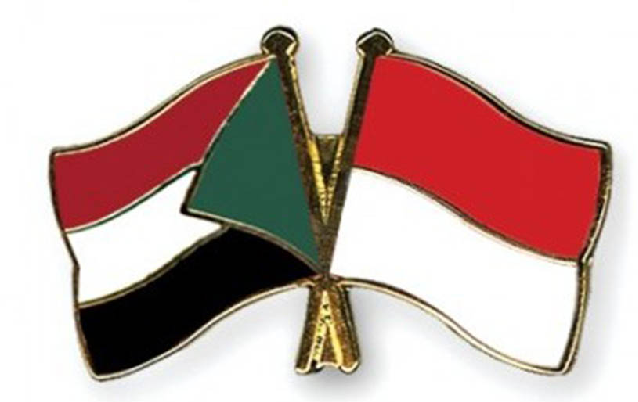

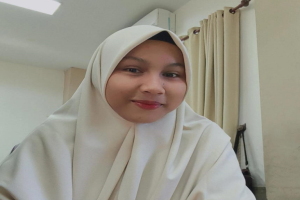

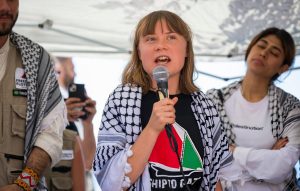
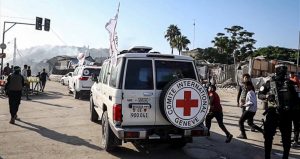


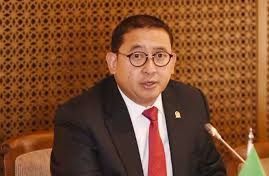
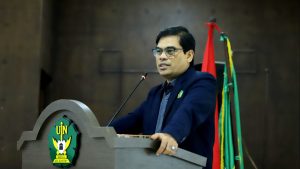
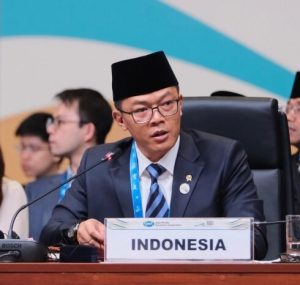
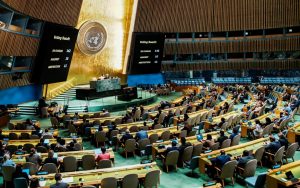
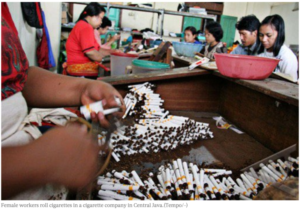
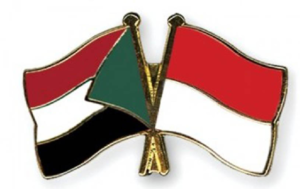
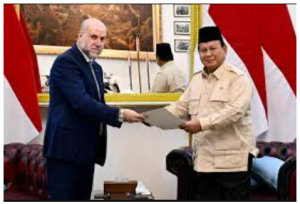



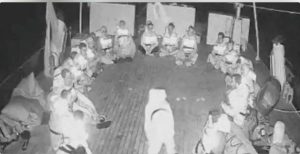
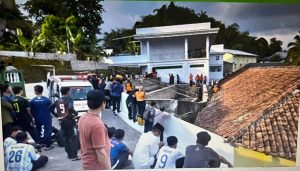
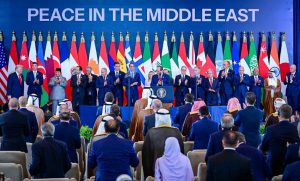
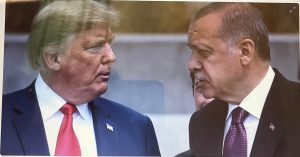

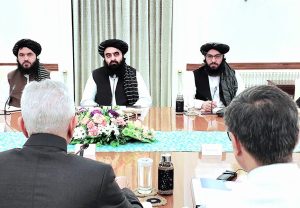




 Mina Indonesia
Mina Indonesia Mina Arabic
Mina Arabic